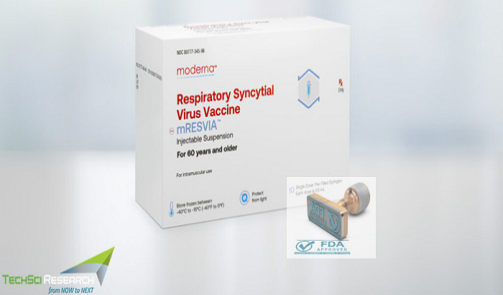Processed Meat: The Silent Killer

Introduction
Processed meat has been a staple in many people's diets for years, but new research has revealed that there may be no safe level of consumption. This news comes as no surprise, as processed meat has already been linked to various health issues such as dementia, diabetes, and cancer. But just how much processed meat is too much?
Background
A new study has investigated the link between processed meat and diseases such as cancer, heart disease, and type 2 diabetes. The study also looked at the impact of other unhealthy foods, such as sugar-sweetened beverages and trans fatty acids. The results showed that there is no safe level of processed meat consumption.
Current Scenario
The dangers of processed meat have been brought to light by various studies and personal experiences. One cancer patient shared their story of wishing that they had taken Pap smears more seriously, as the treatment for their cervical cancer was much more invasive than a simple test. In addition, former Vice President Joe Biden's recent prostate cancer diagnosis has sparked conversations about the importance of early detection and regular check-ups.
In the world of politics, emotions run high when it comes to discussions on vaccines and their safety. Recently, Robert F. Kennedy Jr. made headlines when he fired all 17 members of a committee that advises the government on vaccine safety. However, he has since announced eight new members to the committee, including a physician.
While heart attacks have been the leading cause of death for many years, a recent study has shown a 66% decrease in overall heart disease death rates in American adults. This decrease can be attributed to better education and awareness, as well as advancements in medical technology.
In the pharmaceutical industry, the battle continues between different weight-loss drugs. A recent study showed that Eli Lilly's drug, Zepbound, proved to be more effective in weight loss than Novo Nordisk's Wegovy. This is just one example of the constant competition in the market for the next big weight-loss drug.
Conclusion
The evidence is clear - processed meat is not safe for consumption. With various health issues and risks associated with its consumption, it is important to limit, or better yet, completely eliminate processed meat from our diets. As researchers continue to study the effects of processed meat, it is important for individuals to prioritize their health and make informed decisions about their food choices. It's time to say goodbye to processed meat and hello to a healthier lifestyle.
About the People Mentioned
Joe Biden
Joseph Robinette Biden Jr., commonly known as Joe Biden, is the 46th President of the United States, serving from 2021 to 2025. Born on November 20, 1942, in Scranton, Pennsylvania, Biden moved to Delaware with his family in 1953. He graduated from the University of Delaware in 1965 and Syracuse University Law School in 1968. Before entering national politics, Biden served on the New Castle County Council and later became one of the youngest U.S. Senators at the age of 29, representing Delaware from 1973 to 2009. During his Senate career, Biden chaired the Senate Judiciary Committee and Foreign Relations Committee. He played a crucial role in drafting several significant pieces of legislation, including the Violence Against Women Act and the Violent Crime Control and Law Enforcement Act. Biden also oversaw several U.S. Supreme Court confirmation hearings. In 2008, he was chosen by Barack Obama as his vice presidential running mate, serving two terms as the 47th Vice President of the United States. In 2020, Biden won the presidential election, defeating incumbent President Donald Trump. As President, he focused on rebuilding America's international leadership and implementing policies to address economic recovery and social issues. Biden's presidency concluded on January 20, 2025, when Donald Trump returned to office. Recently, Biden announced that he had been diagnosed with Stage 4 prostate cancer. Despite his health challenges, Biden remains a figure of national interest, with ongoing discussions about his political legacy and influence. His dedication to public service and his efforts to expand opportunities for Americans have been central themes throughout his career.
Robert F. Kennedy Jr.
Robert F. Kennedy Jr. is an American politician, environmental lawyer, and author, born on January 17, 1954, in Washington, D.C. He is the third of eleven children of Robert F. Kennedy, the U.S. Attorney General, and Ethel Skakel Kennedy. His family's political legacy includes his uncle, President John F. Kennedy. Kennedy's early life was marked by personal struggles, including drug addiction, which led to his arrest for heroin possession in 1983. However, he later redirected his life towards environmental advocacy and public service. Kennedy graduated from Harvard University in 1976 with a degree in American history and literature and later earned a law degree from the University of Virginia in 1981. He began his career as an assistant district attorney in Manhattan but soon shifted his focus to environmental law. In 1987, he received a master's degree in environmental law from Pace University, where he taught environmental law from 1986 to 2018 and co-founded the Environmental Litigation Clinic. Notably, Kennedy is the founder of the Waterkeeper Alliance, a global clean water advocacy group, and Children's Health Defense, which focuses on childhood chronic diseases and environmental exposures. He has been recognized for his environmental activism, including being named TIME Magazine's "Hero for the Planet" for his efforts in restoring the Hudson River. Kennedy has also been involved in high-profile legal cases against companies like DuPont and Monsanto. In recent years, he has been a vocal figure in vaccine skepticism and public health controversies. In the 2024 U.S. presidential election, Kennedy initially ran as an independent candidate before endorsing Donald Trump. Currently, his involvement in public life includes controversial stances on health and environmental issues. Despite these controversies, his work in environmental law and advocacy has had significant impacts on public health and environmental protection.
About the Organizations Mentioned
Eli Lilly
Eli Lilly and Company is a leading global pharmaceutical and biomedical corporation founded in 1876 by Colonel Eli Lilly in Indianapolis, Indiana. The company is renowned for its commitment to scientific innovation and high-quality medicines that improve human and animal health worldwide[1][4][6]. From its origins as a small drug manufacturer, Lilly has grown into one of the largest research-based pharma companies, employing over 42,900 people as of 2023 and operating in more than 125 countries[1][2]. A landmark in Lilly’s history was its pioneering role in commercializing insulin in the early 1920s, making it the first company to mass-produce this life-saving therapy for diabetes following its discovery in Toronto. This breakthrough not only transformed diabetes care but established Lilly as a global leader in biologic medicines[2][3]. The company also played a critical role in public health by mass-producing the polio vaccine developed by Jonas Salk in 1955, contributing significantly to the control of this once-devastating disease[2][3]. Throughout the 20th century, Eli Lilly developed several blockbuster drugs that shaped modern medicine, including Prozac (fluoxetine), one of the first widely used antidepressants introduced in 1986; Zyprexa (olanzapine), an antipsychotic launched in 1996; and Cymbalta (duloxetine), used for depression and anxiety, introduced in 2004[2][3]. More recently, Lilly has expanded its leadership in metabolic health with innovative therapies such as Trulicity, Mounjaro, and Zepbound, targeting diabetes and obesity[1][2][3]. Eli Lilly’s mission integrates scientific discovery with a strong ethical framework emphasizing integrity, excellence, and respect for people. Its philanthropic arm, the Lilly Endowment, founded in 1937, supports community and educational initiatives[3][4]. Today, Lilly remains at the forefront of pharmaceutical innovation, wit
Novo Nordisk
## Overview Novo Nordisk is a global healthcare leader headquartered in Denmark, renowned for its pioneering work in diabetes care and its expanding portfolio in obesity, rare diseases, and cardiovascular treatments[1][7]. Founded in 1923, the company today employs over 78,000 people across 80 countries, serving more than 45 million people worldwide with its medicines[1][7]. Novo Nordisk’s mission is to drive change to defeat serious chronic diseases, building on a century of innovation in protein-based therapies[1][6]. ## History and Origins The story of Novo Nordisk began with the discovery of insulin in 1921. Danish Nobel laureate August Krogh, inspired by his wife’s diabetes diagnosis, secured rights to produce insulin in Denmark, leading to the establishment of Nordisk Insulinlaboratorium in 1923[2][3]. Competition soon arose when the Pedersen brothers, former employees, founded Novo Terapeutisk Laboratorium in 1925[2]. For decades, these two companies competed fiercely, both contributing significantly to diabetes care and medical research. In 1989, they merged to form Novo Nordisk A/S, creating one of the world’s largest and most successful pharmaceutical manufacturers[2][4]. ## Key Achievements Novo Nordisk has been at the forefront of diabetes treatment innovation, developing advanced insulin formulations and delivery systems that have transformed patient care[2][5]. Beyond diabetes, the company has expanded into obesity therapies, rare blood disorders, and cardiovascular disease, consistently investing heavily in research and development—over 52 billion DKK in 2024 alone[1]. Its products are now used by millions globally, and the company maintains a robust pipeline of new therapies. ## Current Status As of 2024, Novo Nordisk reported net sales of 290.4 billion DKK and a net profit of 100.1 billion DKK, reflecting strong global demand, particularly for it
















